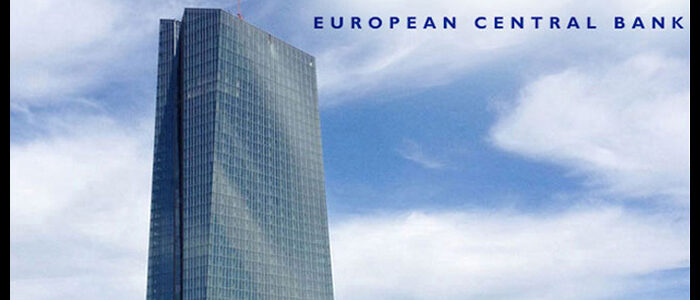
ECB Signals Rate Hikes On ‘Undesirably’ High Inflation
The European Central Bank said on Thursday that it “intends” to raise its key interest rates by a quarter basis point in July after policymakers assessed that the three conditions that should be satisfied before the bank starts raising rates have been met.
The central bank also unveiled the latest ECB Staff macroeconomic projections that showed a further upgrade to the euro area inflation outlook and downgrade to the growth forecasts.
The bank left the key interest rates unchanged in the June meeting. The main refinancing rate stands at zero, the deposit facility rate at -0.50 percent and the lending rate is at 0.25 percent.
The July hike would be the first in 11 years.
The Governing Council, led by ECB President Christine Lagarde, expects to raise rates further in September, and that could be a “larger increment” if the medium-term inflation outlook persists or deteriorates, the bank said.
Economists are widely expecting a 50 basis points hike in September.
“Beyond September, based on its current assessment, the Governing Council anticipates that a gradual but sustained path of further increases in interest rates will be appropriate,” the ECB said in its statement.
The bank also confirmed that it will end the asset purchases under the asset purchase programme, or APP, on July 1. Forward guidance on asset purchases and reinvestment of proceeds was largely unchanged.
Calling high inflation a major challenge, the bank said projections indicate inflation is set to remain “undesirably elevated for some time”.
The ECB Staff sharply raised the Eurozone inflation forecast for this year to 6.8 percent from 5.1 percent.
The projection for next year was lifted to 3.5 percent from 2.1 percent and the outlook for 2024 was boosted to 2.1 percent from 1.9 percent.
The bank raised the forecasts for core inflation, which excludes energy and fresh food, and now sees it at 3.3 percent this year, then slowing to 2.8 percent next year and further easing to 2.3 percent in 2024.
The euro area economic growth outlook for this year was lowered to 2.8 percent from 3.7 percent. The projection for next year was cut to 2.1 percent from 2.8 percent. The forecast for 2024 was raised to 2.1 percent from 1.6 percent.
Trade disruptions and material shortages due to the war in Ukraine, and inflationary pressures fueled by high energy and commodity prices will dampen confidence and growth in the near term, the ECB said.
“However, the conditions are in place for the economy to continue to grow on account of the ongoing reopening of the economy, a strong labor market, fiscal support and savings built up during the pandemic,” the ECB said.
“Once current headwinds abate, economic activity is expected to pick up again.”
The bank said the Governing Council will maintain optionality, data-dependence, gradualism and flexibility in the conduct of monetary policy.
The ECB also reaffirmed that flexibility will remain a key element in its conduct of monetary policy and it stands ready to adjust all of its instruments to ensure that inflation stabilizes at its 2 percent target over the medium term.
“With inflation running red hot but at the same time the Eurozone economy slowing down and facing stagnation or even recession, the ECB’s window to normalize monetary policy has been narrowing almost by the day,” ING economist Carsten Brzeski said.
“Today’s decision shows it’s managed to find a compromise between the doves and the hawks.”
Meanwhile, Capital Economics economist Andrew Kenningham said the failure to provide any new details about a possible backstop quantitative easing (QE) programme means peripheral bonds will remain vulnerable to a sell-off.
Source: Read Full Article